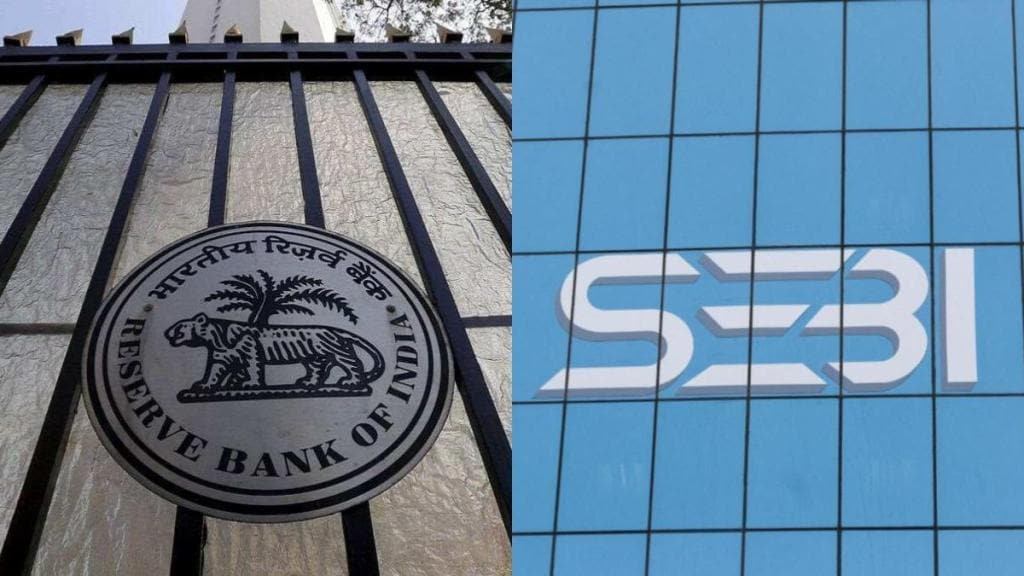Imagine this: A short-term investor wants to make listing gains in an initial public offering (IPO) or small and medium enterprises IPO (SME-IPO). Typically, he would approach his brokerage for funds for a fee (loan for a few days) to make that punt. If the brokerage makes the due diligence much harder or simply refuses to lend, getting those funds to make a quick buck may become far more difficult.
Extend this same behaviour to many brokerages and there is a good chance that markets, especially risky segments like small-caps or SMEs, could see a significant cooling down – something that the Securities and Exchange Board of India (Sebi) has been wanting to achieve for months.
Against this backdrop, Tuesday’s ‘cease and desist’ order on JM Financial Products by the Reserve Bank of India (RBI) makes things more interesting. The banking regulator’s move may help the market watchdog realise its own end since the coming together of the two key regulators can ensure that punters are starved of a key ingredient – liquidity.
Said Deepak Shenoy, founder, Capital Mind, That SEBI coordinates with RBI is a welcome revelation, as the functions of both are interlinked when it comes to markets and financing. Too often, capital markets are used, such as with certain debt alternate investment funds AIFs, to override regulatory limits that apply to RBI-regulated entities.”
RBI, in its notification, said, “This action is necessitated due to certain serious deficiencies observed in respect of loans sanctioned by the company for IPO financing as well as NCD subscriptions. The RBI carried out a limited review of the books of the company on the basis of the information shared by the Securities and Exchange Board of India (Sebi).”
While the RBI’s decision will be contested, especially by JM Financial which has clearly said that they strongly believe that there have been no material deficiencies in their loan sanctioning process and the (IPO financing) product is short term and self-liquidating in nature. “In the context of IPO funding, the Power of Attorney (PoA) is taken as a risk containment measure only. The practice of taking PoA is prevalent across the industry and is perfectly legal,” the company’s statement said.
The brokerage, which has been around for over five decades, is one of the biggest players in the market. It is the sixth biggest investment banker in the country, raising as much as Rs 14,733 crore for 34 companies in 2023.
Its subsidiary, J M Financial Products, has lent around Rs 2,300 crore against shares, debentures and other instruments, over 50% of its loan book totaling Rs 4,594 crore in FY23.
But RBI’s action against a formidable player will definitely lead to more caution from all players. It may also soften the demand for risky segments like mid-and small-cap, SME-IPOs and F&O market.
The demand for some SME-IPOs has been a whopping 500x and 1,000x. Turnover in the F&O has also skyrocketed. The NSE F&O average daily turnover has more than doubled (107%) to Rs 318 trillion in FY2024 (up to March 5) from Rs 153.5 trillion in FY2023.
In fact, in the past three consecutive years, F&O turnover has risen by over 100% — the highest was in 2021 at 186% — reflecting that there has aggressive participation from retail investors. And most fund managers and market participants have expressed their worries about this trend.
What is more interesting is that there is no industry-wide action from the regulator – something that could have led to industry representation to both the regulator and the finance ministry. But the action ‘itself’ puts enough doubt in the minds of market participants that they need to be more careful with their due diligence and governance norms.
Hitting at the source of the funds could lead to drying up of liquidity by reducing leverage through all kinds of loans – shares, gold, personal and other financial products – will lead to a more calibrated approach towards lending.
“Financial leverage offered to shareholders to buy even more stocks is the creation of leverage that could have systemic risk at extremes, as has been noticed by RBI in the IPO financing situation. Sebi will need to coordinate closely with RBI to ensure that the players that straddle both regulators do not take undue advantage of regulatory arbitrage,” added Shenoy.
A collaboration of regulators instead of working in silos ensuring nothing falls in between the stool should definitely make all players more than a little diligent.
More importantly, at a time, when the Sebi is planning to implement T+0 settlement system, such collaborations will help both clean up and deleverage the system.

